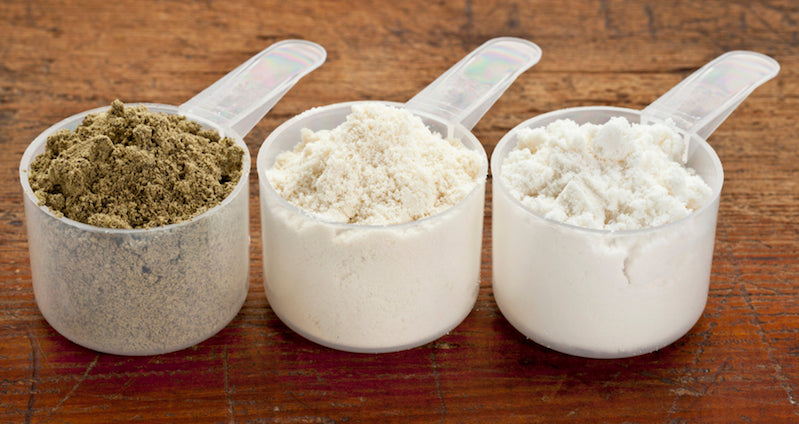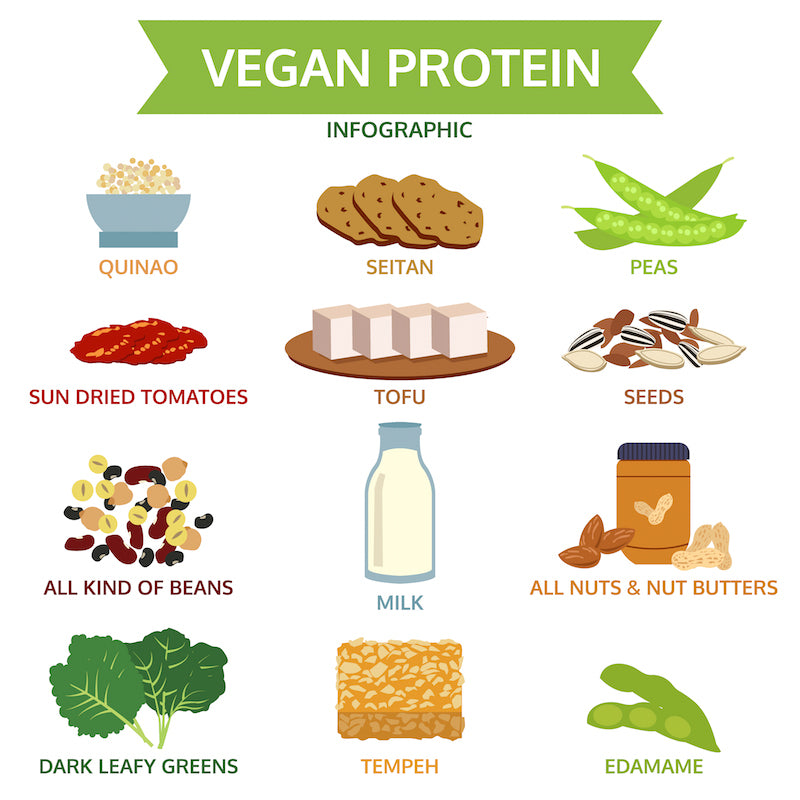
You’ve probably heard time and time again about protein – that you need more of it, that you should eat it at this time, don’t have it at this time, eat it in this form, don’t forget about this source, and make sure not to consume it from this source.
With all the different and conflicting information, it can be hard to discern what is important, what is correct, and what is just something that you heard on a weight loss commercial.
Want to get in on the real deal? Read on and you’ll learn everything you need to know about protein and your health:
Why do I need protein?
Protein is used by every tissue in our body. Made of amino acids, protein is a source of energy, provides us with strength and is the building blocks of our tissues and cells. You probably think of protein as being responsible for building up muscle, and while this is true, this is only a small portion of what it does. It also helps carry out cellular reactions, help transport substances through our body, aid in digestion, energy creation, metabolism, and the list goes on. Safe to say, that with inadequate protein, we will eventually run into a lot of problems in maintaining a healthy body.
How much protein do I need?
The amount of protein you need varies a lot from person to person, and is dependent on several factors, some of which include:
- Whether you’re male or female
- Weight and height
- Whether you are trying to lose weight, gain weight or maintain weight
- How much you exercise and what type of exercise you do
- Your dietary and lifestyle habits
A general guideline for people who are trying to lose weight (see below), or are active is 1 gram of protein for each kilogram of weight per day. For example, if you weigh 65 kilograms, you should consume 65 grams of carbohydrate. This is a very general estimate and should be catered to each specific person, but it’s a good place to start.
What are the best sources of protein?
Lean protein is the best source, including things like eggs, chicken and fish, as these foods have a high protein content without loading up on fat and processed ingredients. It is also a good idea to obtain some of your protein from plant-based sources. This includes things like beans and legumes, hemp, nuts, seeds and leafy greens.
If you are vegan or vegetarian, obviously all of your protein will be from plant-based sources, but even meat eaters can benefit from plant sources, and things like ‘meatless Monday’ are helping this become more and more encouraged. Plant sources are cleaner and create fewer byproducts during digestion.
 What’s the deal with protein and weight loss?
What’s the deal with protein and weight loss?
The big question is how protein impacts weight loss and how you can encourage weight loss with a higher protein diet. While there are several schools of thought on the best ways to lose weight, one is adopting a higher protein diet. The thought process behind it is that protein fills you up and helps you feel fuller for longer, thereby making you eat less and lose weight. Furthermore, protein doesn’t spike your blood sugar like carbohydrates, therefore you don’t have the cycle of high blood sugar, followed by a crash and then cravings for sweets and sugar.
When should I eat my protein?
If you are using protein to aid in your weight loss, you should be incorporating protein with every meal. Most importantly is to start the day off with protein. When you wake up, you are consuming your first meal in a fasted state, beginning with low blood sugar and bringing it up. If you bring your blood sugar up with carbohydrates only (i.e. toast or cereal), you spike your blood sugar and set yourself up for the spike and crash cycle that will continue all day, leading you to eat lots of carbs, crave sweet treats and inevitably consume excess sugar as you try to beat your cravings. Eating a breakfast with some protein in it will reduce the magnitude of your blood sugar spike and raise and lower your blood sugar more slowly, setting you up for a more successful day food wise. Aim to continue to consume protein with every meal, to keep your blood sugar levels consistent and prevent any over eating. Furthermore, if you find yourself hungry and wanting a snack (check out these 10 bikini body snacks!) outside of meal times, aim for a protein option as it will fill you up faster and for longer (and with fewer calories) than a carbohydrate option.
By: Laura Peill – (Check out her blog Chronicles of Passion & Facebook)



